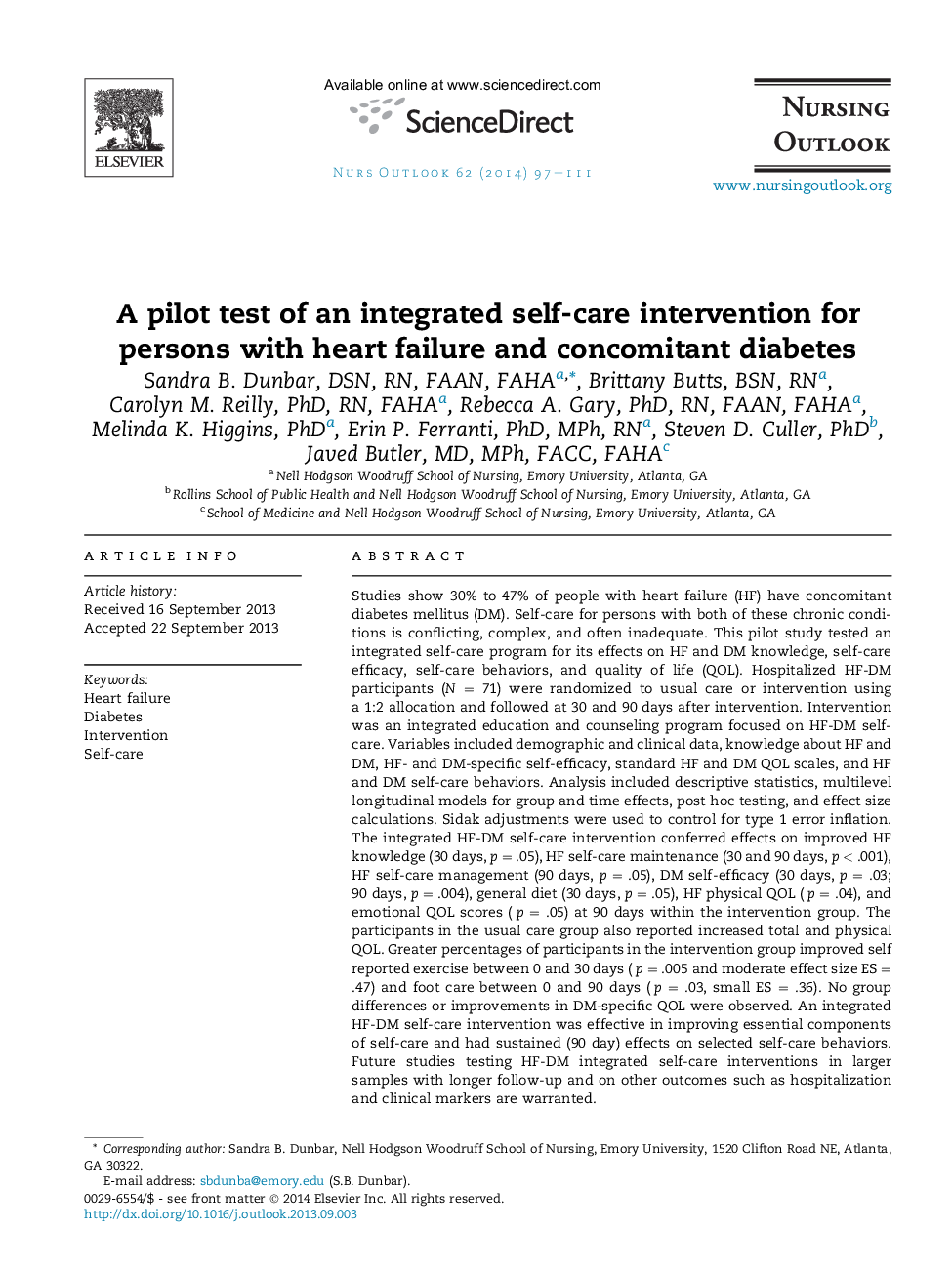| Article ID | Journal | Published Year | Pages | File Type |
|---|---|---|---|---|
| 2676997 | Nursing Outlook | 2014 | 15 Pages |
Studies show 30% to 47% of people with heart failure (HF) have concomitant diabetes mellitus (DM). Self-care for persons with both of these chronic conditions is conflicting, complex, and often inadequate. This pilot study tested an integrated self-care program for its effects on HF and DM knowledge, self-care efficacy, self-care behaviors, and quality of life (QOL). Hospitalized HF-DM participants (N = 71) were randomized to usual care or intervention using a 1:2 allocation and followed at 30 and 90 days after intervention. Intervention was an integrated education and counseling program focused on HF-DM self-care. Variables included demographic and clinical data, knowledge about HF and DM, HF- and DM-specific self-efficacy, standard HF and DM QOL scales, and HF and DM self-care behaviors. Analysis included descriptive statistics, multilevel longitudinal models for group and time effects, post hoc testing, and effect size calculations. Sidak adjustments were used to control for type 1 error inflation. The integrated HF-DM self-care intervention conferred effects on improved HF knowledge (30 days, p = .05), HF self-care maintenance (30 and 90 days, p < .001), HF self-care management (90 days, p = .05), DM self-efficacy (30 days, p = .03; 90 days, p = .004), general diet (30 days, p = .05), HF physical QOL (p = .04), and emotional QOL scores (p = .05) at 90 days within the intervention group. The participants in the usual care group also reported increased total and physical QOL. Greater percentages of participants in the intervention group improved self reported exercise between 0 and 30 days (p = .005 and moderate effect size ES = .47) and foot care between 0 and 90 days (p = .03, small ES = .36). No group differences or improvements in DM-specific QOL were observed. An integrated HF-DM self-care intervention was effective in improving essential components of self-care and had sustained (90 day) effects on selected self-care behaviors. Future studies testing HF-DM integrated self-care interventions in larger samples with longer follow-up and on other outcomes such as hospitalization and clinical markers are warranted.
